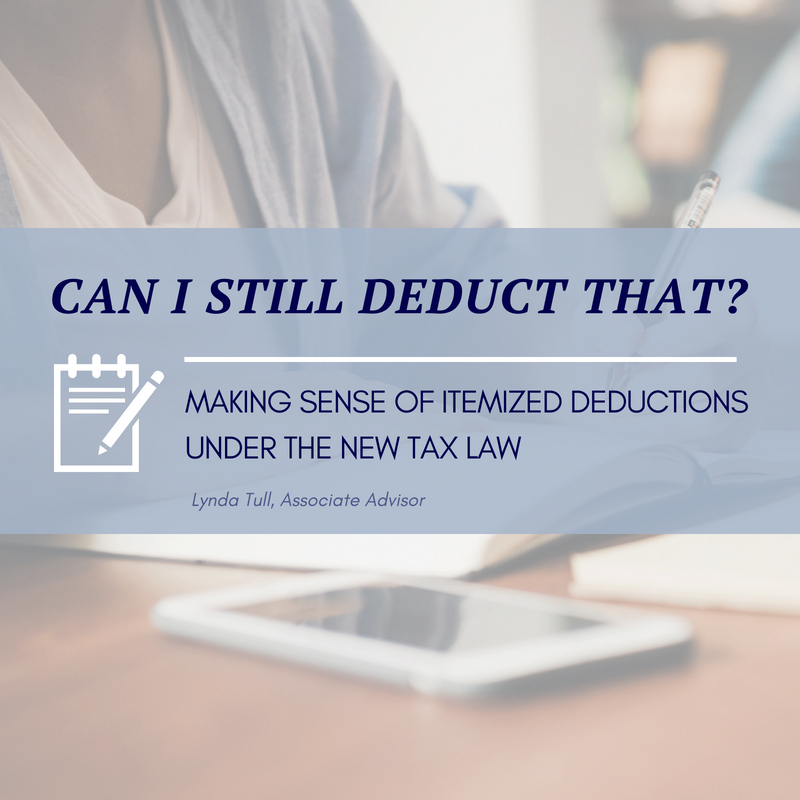MAKING SENSE OF ITEMIZED DEDUCTIONS UNDER THE NEW TAX LAW
Lynda Tull, Associate Advisor
If you’re a homeowner and you’re above the standard deduction, chances are you or your tax preparer have itemized your deductions.
These deductions include, but are not limited to:
- Home mortgage interest payments
- City/state/school property taxes
- Personal property taxes
- State income taxes
- Other miscellaneous deductions.
As of January 1, 2018 the tax laws have changed.
First, you need to determine if you qualify for itemized deductions for the 2018 tax year. You must meet the new standard deduction of: $12,000 for single, $18,000 for head of household, and $24,000 for married filing joint. Since the standard deduction has increased, you will lose personal exemptions of $4,050 per person.
Once these criteria are met, you need to gather your documentation for itemizing. These are just a few examples and each of these categories have limitations. For example:
- Medical costs
- Limitations for medical, dental, prescriptions, and any qualifying medical payments is 7.5% of your adjusted gross income (AGI).
- Taxes paid
- Starting in 2018, limitations to taxes paid is capped at $10,000.
- Interest paid
- For tax year 2018, if you purchased your home after December 14, 2017 you can deduct interest for the first $750,000 of mortgage debt. Home equity loans used for purposes other than improvements to your current home are not deductible.
- Gifts to charity
- Contributions to charities or 501c (3) organizations are capped at 60% of your AGI.
Two categories no longer covered by the new law are:
- Miscellaneous (unreimbursed job expenses, professional fees including investment and tax prep fees)
- Deductions for theft and personal casualty losses.
We know understanding the ever changing tax laws can be challenging. As always, please don’t hesitate to contact our Team for more information, clarification or discussion.








